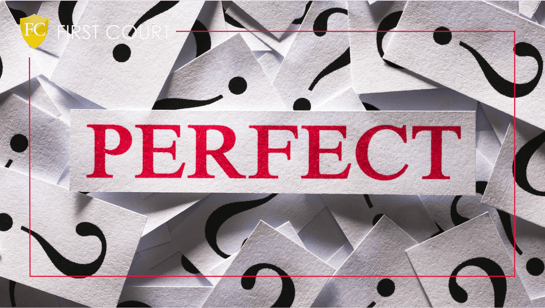
Introduction
In the intricate landscape of the legal realm, the concept of negligence stands as a fundamental and complex element in determining liability. It plays a crucial role in various civil lawsuits, especially those involving corporate defendants.
In recent times, there has been a growing concern that jurors might misunderstand the true essence of negligence, mistakenly believing that it demands perfection rather than reasonable care. This misperception holds significant implications for corporate defendants, potentially leading to unjust judgments and discouraging innovation. At First Court, we delved into the issue of jurors' misunderstanding of negligence and explored its far-reaching consequences.
The Foundation of Negligence
At its core, negligence is simply the failure to exercise reasonable care under the given circumstances. It is a cornerstone of our law. Particularly important in cases where individuals or corporations face accusations of causing harm through carelessness or inattention. The primary principle guiding negligence is that, in most situations, entities are expected to act with a degree of care that an ordinary, prudent person would exercise in similar circumstances.
Jurors and the Expectation of Perfection
The crux of the problem lies in the misperception held by many jurors regarding negligence. Some jurors seem to equate negligence with a demand for perfection. In reality, negligence does not require flawless performance but rather an evaluation of whether the defendant's actions or inactions met the standard of reasonable care. This standard considers the circumstances, potential risks, and the actions that a reasonable person or company would have taken in the same situation.
For instance, in a recent mock trial, the jurors displayed this demand for perfection as you can see in the graph below:

The Consequences of This Misconception
Jurors misunderstanding negligence and expecting perfection can have a range of significant consequences:
- Unjust or Incorrect Verdicts: Unrealistic expectations may lead jurors to find companies liable for accidents or mishaps that result from unforeseeable circumstances, even when these entities acted reasonably. If a juror misunderstands the concept of negligence, they may reach an incorrect verdict. This could result in an innocent party being held liable or a negligent party being absolved of responsibility.
- Inconsistent Awards: In cases where damages are awarded, jurors determine the amount based on their understanding of the harm caused by the negligence. If a juror misunderstands negligence, they may miscalculate the damages, leading to inconsistent or inappropriate awards.
- Inhibiting Innovation: Unattainable standards may make corporations risk-averse, stifling innovation and progress as companies fear litigation even when their actions are reasonable.
- Economic Impact: Excessive judgments against corporations may result in higher prices for goods and services, impacting consumers and hindering economic growth and job creation.
- Legal Costs: Companies may face lengthy and expensive legal battles, even when they have acted reasonably, leading to increased legal costs and potentially bankrupting smaller businesses.
Addressing the Issue
To mitigate this problem, a few steps can be taken:
- Juror Education: Efforts should be made to educate jurors about the true meaning of negligence, emphasizing that corporations are not expected to be perfect but to act with reasonable care. Do this by using clear and simple language. Avoid legal jargon and use everyday language can help jurors better grasp the meaning.
- Repetition of the definition: Do not wait until the jury instructions are read to explain negligence. Repeating key points about negligence throughout the trial can reinforce understanding. If applicable, expert testimony may be required. Expert witnesses can explain complex aspects of the case, including the standard of care and whether the defendant's actions met or fell below that standard. An expert can break down technical information and provide a clear explanation to the jury. Use the term constantly and if possible, visually. Visual aids are powerful tools to enhance understanding.
- Opening and Closing Statements: The attorney should use the opening and closing statements to highlight and emphasize key points related to negligence. These statements offer an opportunity to frame the narrative and guide jurors in their understanding of the legal concepts.
- Clearer Jury Instructions: Judges should provide jurors with clear and concise instructions about the standard of care and what constitutes negligence in a given case to prevent misinterpretations.
- Mock Jury Consultations: Conducting mock jury consultations or focus groups before the trial can help the attorney gauge how well jurors understand the concept of negligence. Feedback from these sessions can inform adjustments to the attorney's trial strategy.
Conclusion
Negligence is a critical element in determining liability in civil lawsuits, and jurors play a pivotal role in upholding the principles of justice. The misconception that negligence requires perfection rather than reasonable care can have far-reaching consequences, leading to unjust verdicts, hindering innovation, and impacting the economy. It is crucial to address this issue through juror education, clearer instructions, and, if necessary, legal reforms. By doing so, we can ensure a fair and just legal system that promotes responsibility while allowing room for progress and innovation
Recent Articles by Our First Court Team:

Dec 13, 2023 2:44:43 PM


.jpg?width=520&height=294&name=Blog%20Post%20Images%20(1).jpg)
.png?width=520&height=294&name=Blog%20Post%20Images%20(1).png)

Comments